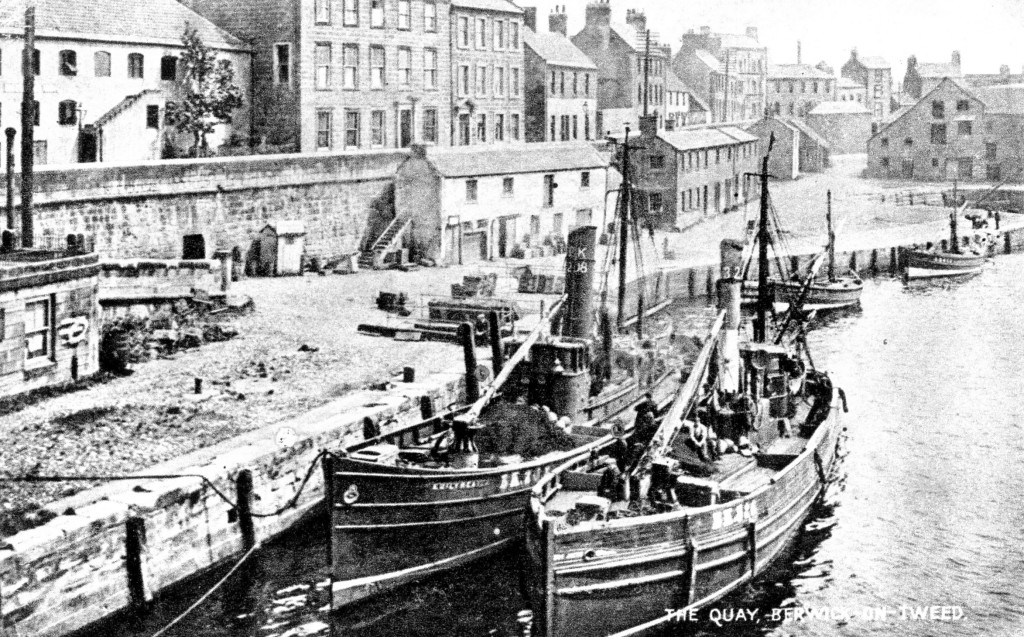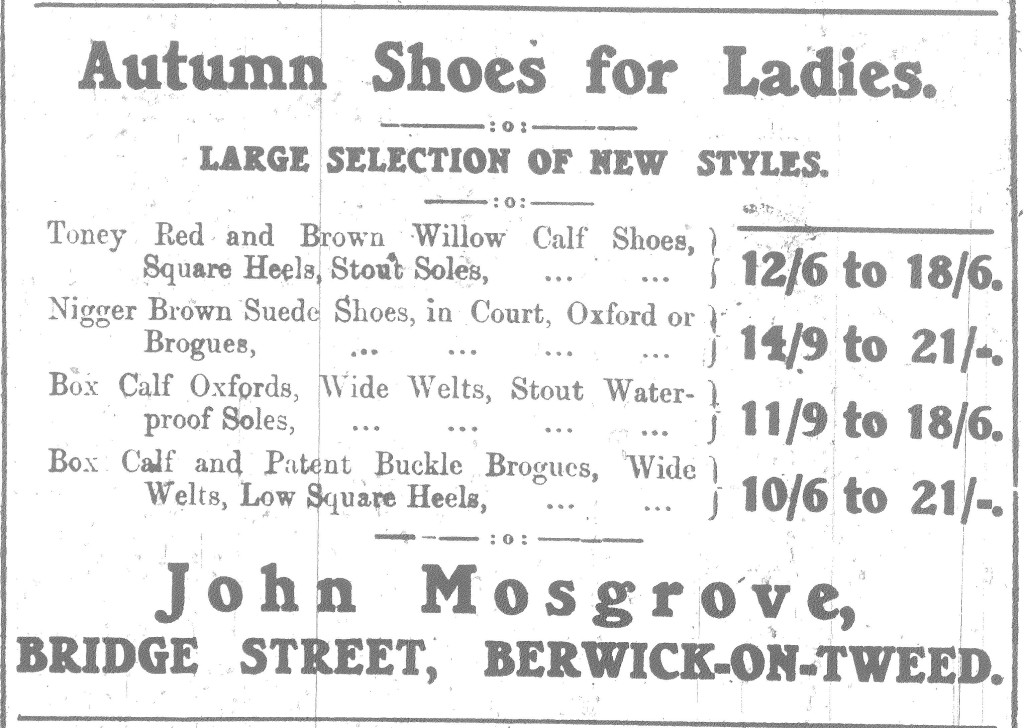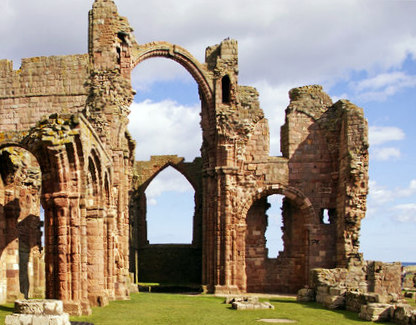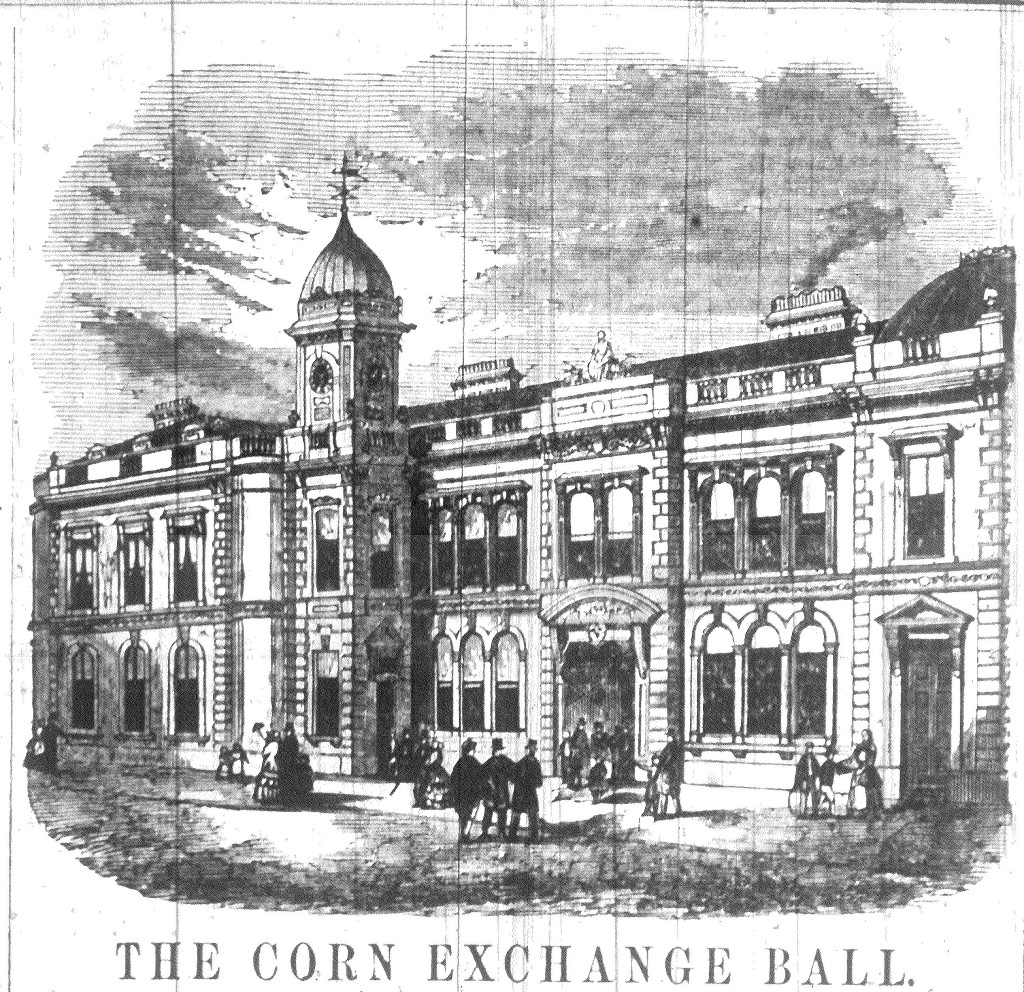BERWICK ADVERTISER, 24 SEPTEMBER 1915
HINTS FOR THE HOME
Here is a good recipe for potted meat. Stew 1lb of stewing beef until tender. Pass this through a mincing machine. Season with salt and pepper, and work in also about 2oz of butter. Press the mixture into potted meat jars, and cover with melted butter.
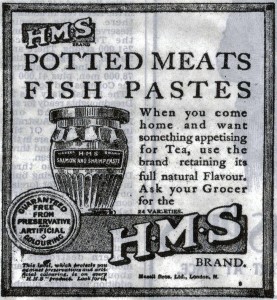
When putting on kid gloves, always begin by buttoning the second button, then, when buttoned to the top, you can easily fasten the first button without tearing the kid. Never remove the glove by pulling the fingers, but by drawing the part covering the wrist over the hand.
When the hands are very dirty, use potato instead of soap. This will remove the dirt more quickly, and soften the skin at the same time.
When cut bread and butter is left over from meals, place it with a serviette which has been dipped in cold water. Place the food in a cool place and it will keep quite fresh and moist.
To prevent the juice from boiling over in a fruit tart, sprinkle the fruit with cornflower.
Never throw away your candle ends. Place these in a bag, and you will find them useful for ironing day. If the iron is occasionally passed over the bag, it will give the article a beautiful gloss.
THE PLAYHOUSE
Good programmes still continue to be submitted at the “Playhouse.” This week an excellent vaudeville turn is seen in “Stowe Brothers,” who present a novel acrobatic act. “Ashes” was the bioscopic feature during the first part of the week, while, commencing on Thursday, the feature will be “A Woman’s Triumph.” The latter is a fine film with a beautiful and impassioned story from the works of Sir Walter Scott. The feature films for next week’s programme are particularly good. At the beginning of the week the star film will be “The Link in the Chain,” a tense drama in three parts. The story is woven round the theft of a necklace. The charge is laid on an innocent man, who suffers imprisonment while his friends toil incessantly to prove his innocence, and they eventually do so to the undoing of the unscrupulous and the righting of the innocent. Commencing on Thursday next the feature will be “Temptation.” an intensely dramatic photo-play in three parts. The synopsis, which is a lengthy one, could not receive justice here owing to lack of space, but suffice it to say that it is a story of strong passions, full of sensations and thrills. Interest is held throughout because of its realism. “Harmon,” the dancing musician is the turn for next week. For further particulars see advertisement on front page.
RABBITS AS FOOD
Attention has been called to the value of the rabbit as an article of food during the present high prices of meat. Land owners and farmers, who have a sufficiency of hands left, should see to it and keep the adjacent towns as liberally supplied as possible, and meet the needs of the poorer inhabitants. The cutting of the harvest has tended to make the supply more liberal, but in Berwick on Saturday it was not equal to the demand, prices ranging from 1s 4d to 1s 10d per pair.
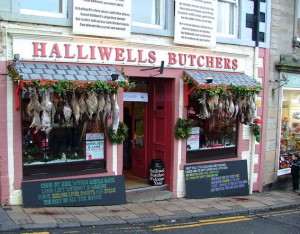
RECRUITING MEETING AT WOOLER
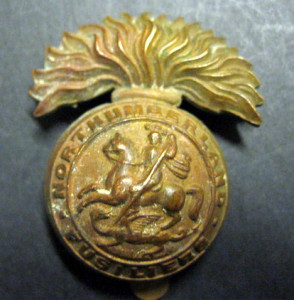
About a 100 of the 6th Northumberland Fusiliers including the Band arrived at Wooler on Monday afternoon on their recruiting tour. They were encamped on Turvelaws haugh for the night. In the evening a meeting was held in the Archbold Hall at which Mr Noel Villiers of Weetwood presided. Addresses were delivered by the Chairman, Sergt.-Major Walsh, Rev. Lothian Gray of Sprott, Dunbar, and colonel Napier. As a number of meetings have already been held here, both Wooler and district having responded well to the call, recruits were invited to come forward, but apparently without result. A dance took place after the meeting to music supplied by the band. An officer’s wife expressed her disgust at seeing so many young men in civilian clothes dancing saying she felt ashamed of them.


